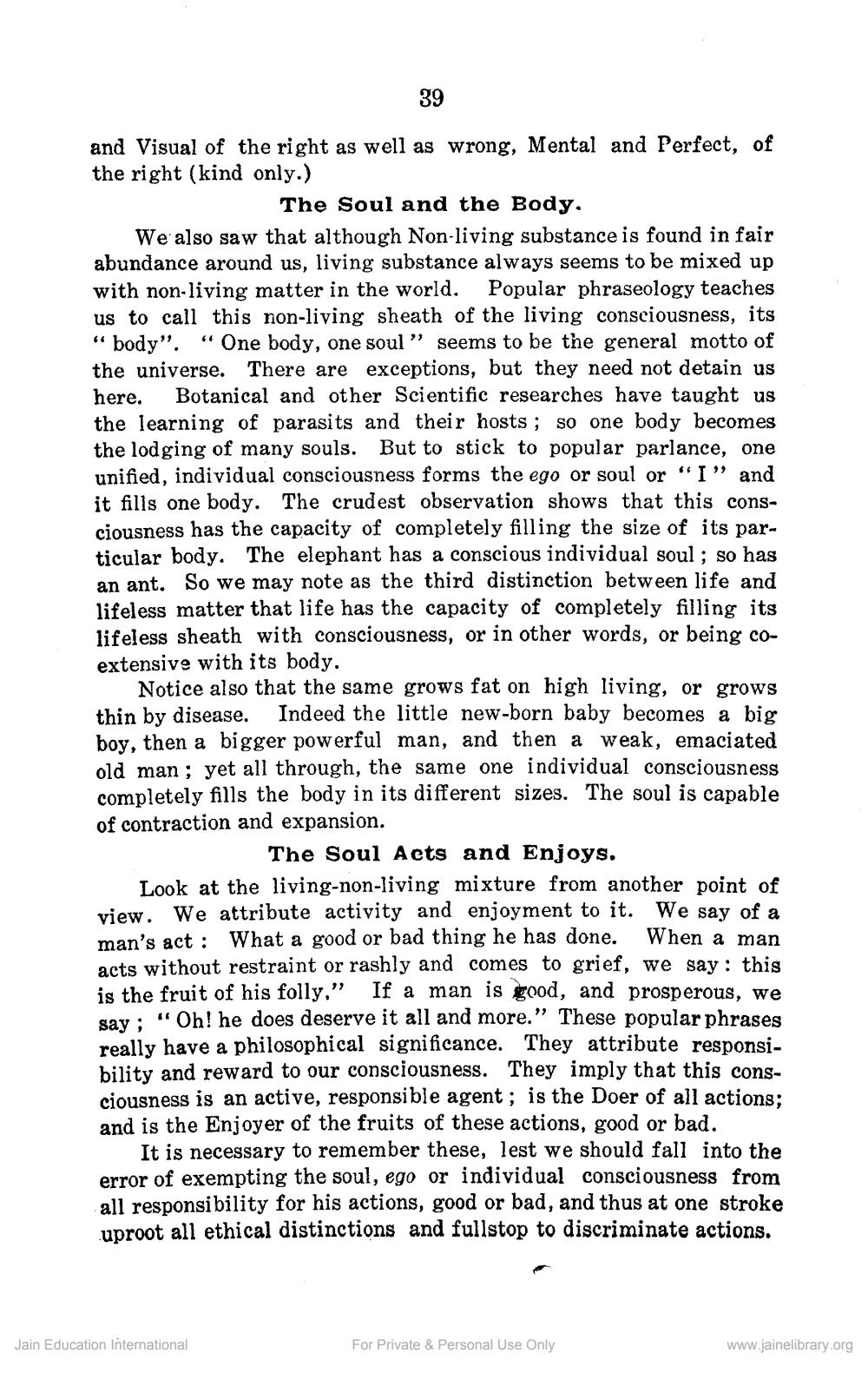________________
39
and Visual of the right as well as wrong, Mental and Perfect, of the right (kind only.)
The Soul and the Body. We also saw that although Non-living substance is found in fair abundance around us, living substance always seems to be mixed up with non-living matter in the world. Popular phraseology teaches us to call this non-living sheath of the living consciousness, its “body”. “One body, one soul ” seems to be the general motto of the universe. There are exceptions, but they need not detain us here. Botanical and other Scientific researches have taught us the learning of parasits and their hosts; so one body becomes the lodging of many souls. But to stick to popular parlance, one unified, individual consciousness forms the ego or soul or “I” and it fills one body. The crudest observation shows that this consciousness has the capacity of completely filling the size of its particular body. The elephant has a conscious individual soul ; so has an ant. So we may note as the third distinction between life and lifeless matter that life has the capacity of completely filling its lifeless sheath with consciousness, or in other words, or being coextensive with its body.
Notice also that the same grows fat on high living, or grows thin by disease. Indeed the little new-born baby becomes a big boy, then a bigger powerful man, and then a weak, emaciated old man; yet all through, the same one individual consciousness completely fills the body in its different sizes. The soul is capable of contraction and expansion.
The Soul Arts and Enjoys. Look at the living-non-living mixture from another point of view. We attribute activity and enjoyment to it. We say of a man's act: What a good or bad thing he has done. When a man acts without restraint or rashly and comes to grief, we say: this is the fruit of his folly." If a man is good, and prosperous, we say: "Oh! he does deserve it all and more.” These popular phrases really have a philosophical significance. They attribute responsibility and reward to our consciousness. They imply that this consciousness is an active, responsible agent; is the Doer of all actions; and is the Enjoyer of the fruits of these actions, good or bad.
It is necessary to remember these, lest we should fall into the error of exempting the soul, ego or individual consciousness from all responsibility for his actions, good or bad, and thus at one stroke uproot all ethical distinctions and fullstop to discriminate actions.
Jain Education International
For Private & Personal Use Only
www.jainelibrary.org




